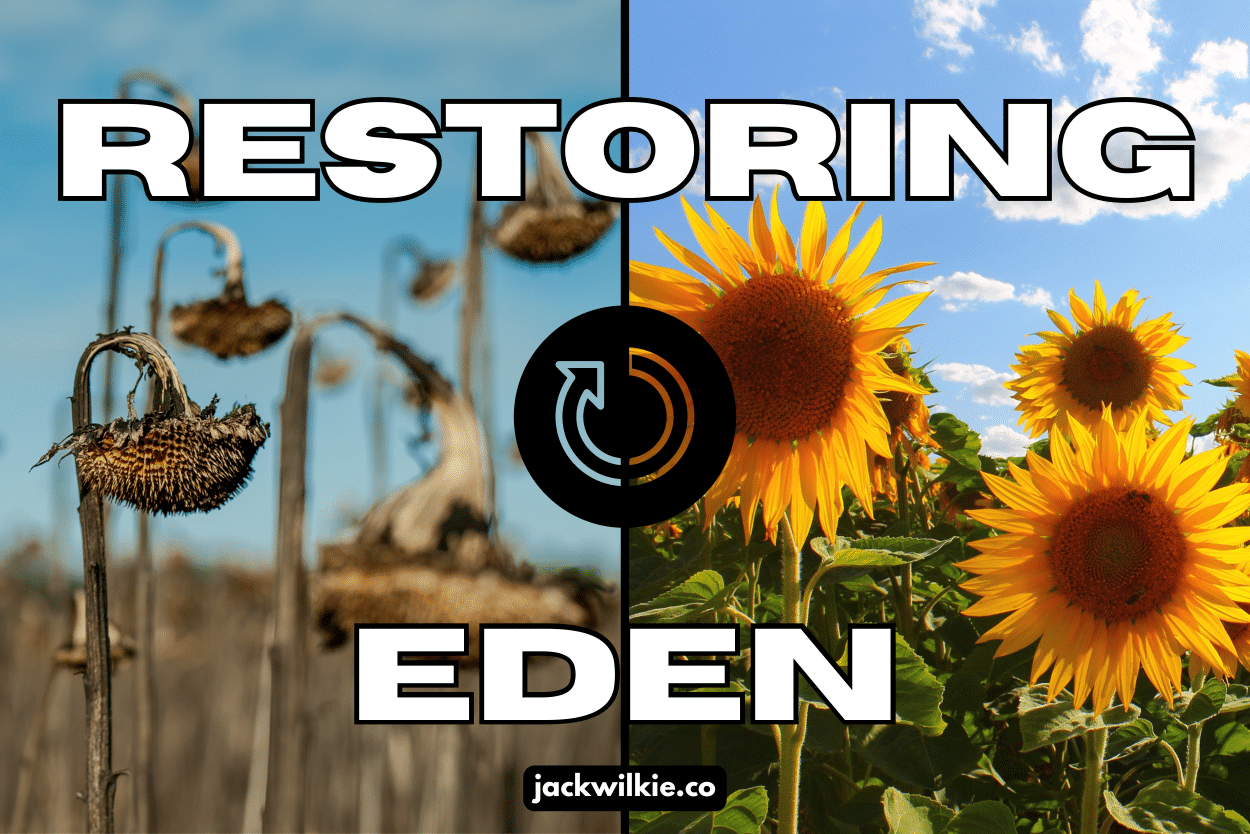Restoring Eden
Comparing and contrasting the beginning and the end
When God created man He also created a garden, a sanctuary of sorts for Adam to keep. As we know, Adam and Eve fell by eating the forbidden fruit and forever lost access to the Garden of Eden.
The story arc of the entire Bible is about restoring and perfecting the relationship between God and man. Abraham was the man through whom the plan was inaugurated. In Moses God chose a people and provided them ways to be cleansed enough to come into His presence. In Jesus we have the perfect High Priest through whom we can confidently come before God's throne. And in the Spirit, God dwells with His people.
But all of that still looks forward to the final reunification.
And the way the Bible beautifully crafts the narrative, we see everything lost in Eden will be restored and even made better. Consider some parallels between the Creation account and the end in Revelation:
- Both Eden and the city of God have a river (Genesis 2:10, Revelation 22:1)
- Both have gold and precious stones (G 2:12, R 21:19)
- Both have the tree of life (G 2:9, R 22:2)
- Both feature God's presence (3:8, 21:3)
However, I see three big differences between Eden and the heavenly city in the text.
First, it is no longer a garden but a city.
Sure, there are trees and a river, but we're also given a description of a gigantic city with streets, walls, and gates. Looking at the dominion mandate (take dominion and rule over the earth) and cultural mandate (be fruitful, multiply, and fill the earth) given to Adam and Eve (Genesis 1:28), one can logically deduct God intended for humans to create civilization. We were not created to be perpetually confined to agrarian life, but were expected to go and build.
And, in the new Adam (Jesus) we see the fully-built city of God. This tells us something about the church today. As we build the "already, but not yet" representation of the city of God on earth, we should not be afraid to build a culture which serves as a counter-culture to the cities of men. Even while dwelling among them we can show them how Christian society is different.
Second, there is no tree of knowledge of good and evil.
For one thing, we can’t “un-learn” something. Once Adam and Eve gained knowledge of good and evil, that door was forever opened. Humans have such knowledge thanks to their decision, so the tree is now irrelevant.
But more importantly, the lack of the tree is a reminder there will be no sin in our eternal home. And how can we know there will be no sin there? Because we've come fully to maturity, discerning right and wrong (Hebrews 5:14). Even in our imperfections, we have yielded our consciences to what God says is right. We’ve declared our desire to be made right and set free from sin, and He is granting it now and will grant it perfectly in eternity.
Third, God dwells there permanently.
We read of God walking in the garden in Genesis 3:8, but He was not right there in plain sight at all times. One of the great promises we have to look forward to is that God will dwell among us and we will forever be in His presence (Revelation 21:3, 22:3-5).
This helps us understand how to live now. We want to live in the light of His presence, and He's given us a partial sense of His presence in the Spirit. We are not like Adam and Eve, separate from God and awaiting judgment when He appears again. No, we can walk in His light every day. And if we have nothing to hide, we should always desire to walk in His light (1 John 1:6-10).
God is in the process of making all things new, and that means reversing the curse of sin and making man into what we were always meant to be. He loved us enough to create us and make a relationship possible with us, and His final act will be coming to dwell with us eternally.
Praise God for the wisdom which set forth the plan, and for the love which saw it through.
This article first appeared on Focus+


